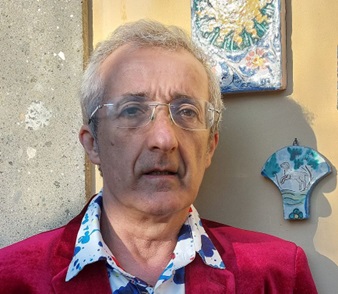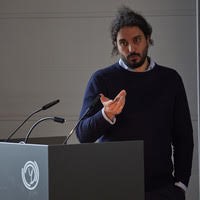Collection
Technology, Nature, and Wellbeing in Contemporary Societies
- Submission status
- Closed
Humans, more than any other species, transform the world according to their needs. The past few decades have witnessed significant shifts in technological and cultural development in various parts of the world, such as urbanization and globalization of communications. On the one hand, technological progress has facilitated human life enabling interconnected collective synergies (e.g., advanced health, research, and educational frameworks). On the other hand, it has paradoxically led to detrimental effects on environmental, psychological, physical, and social well-being. Specifically, technologically-mediated interactions (e.g., Internet, artificial intelligence AI) instigated a drastic reconceptualization of our being in the world. Here, we aim to shed light on these emergent contradictions that our modern modes of interaction impose and critically propose potential pathways for reconciling them. More concretely, this Theme Issue highlights the perils of the modern lifestyle invaded by technologically-mediated interaction (Session 1); then, it offers a glance at technologically-based opportunities and applications in various fields (Session 2). Finally, it proposes authentic and unmediated interactions (e.g., physical activity, natural contact, affective touch, and art) as resources to counteract the negative consequences of technology on well-being in modern societies (Session 3).
Editors
-
Chiara Fini
Chiara Fini, PhD in Neuroscience, is a researcher in General Psychology at the Department of Dynamic, Clinical Psychology and Health Studies, Sapienza. She has been working as a post-doctoral researcher at the Department of Experimental Clinical and Health Psychology at UGent and as a free collaborator at KU Leuven. Overall, her theoretical interests concentrate on the Field of Embodied Cognition, spanning from the perceptual processing of space/objects to the acquisition and processing of complex meanings. Recently, her focus has been on comprehending the influence of both individual and social (verbal) cognition on embodied social dynamics.
-
Anna Maria Borghi
She has a degree in philosophy and a PhD in experimental psychology. After working at the University of Bologna, she moved to Sapienza University of Rome, where she is professor of general psychology. She is also an associate researcher at the Institute of Sciences and Technologies, National Research Council. Her research interests concern the relationship between objects, concepts, language, and body. Lately she is working on abstract concepts, social interaction, and inner speech. Author of more than 200 publications, she has recently written The freedom of words: On abstractness and the power of language, Cambridge University Press, 2023.
-
Salvatore Maria Aglioti
Trained as behavioral neurologist, he is full professor of Psychobiology and Physiological Psychology at Sapienza University of Rome. He is the head of the laboratories of Cognitive, Affective and Social Neuroscience at Sapienza and at Fondazione Santa Lucia, IRCCS, and of the Neuroscience and Society research line at the Italian Institute of Technology. His research interests revolve around a variety of social neuroscience topics ranging from empathy for pain to deception and dishonesty in social contexts. In addition to more than 300 scientific articles in international journals he published several chapters in English and Italian books.
-
Takahiko Koike
Takahiko Koike has a PhD in informatics. During postdoc training at the National Institute for Physiological Sciences in Japan, he started research using a hyperscanning fMRI technique. This method enables the simultaneous recording of two brains during communication, shedding light on the intricate process of mutual understanding between individuals and the underlying neural mechanisms. Currently, in RIKNE CBS, he uses the technique to investigate the neural basis of social well-being.
-
Dimitris Bolis
Dimitrios Bolis, Trained in engineering, biomedicine and philosophy, affiliated with the Italian Institute of Technology, where he studies social interaction and the self, with a focus on neurosocial minorities, such as autism. He holds a PhD in Medicine from the LMU Munich and the Max Planck Institute of Psychiatry, an MSc in Biomedical Engineering from the ETH Zurich and an MEng in Electrical and Computer Engineering from the Aristotle University of Thessaloniki. His PhD traced the social origins of human becoming, while reviewing psychopathology as interpersonal misattunement in contrast to a mere brain misfunction of the individual.
-
Vanessa Era
Vanessa Era, Ph.D. in social neuroscience, is a researcher at the Department of Psychology, Sapienza University of Rome. Her research explores the sensorimotor dimensions of interpersonal motor interactions. Her recent work focuses on the bidirectional communication between the brain and the deep body (cardiac and gastric systems), in influencing social cognition. This line of research extends to both healthy populations and individuals with neurodegenerative disorders, contributing to the understanding of the interplay between neurophysiological signals and social cognitive processes.







